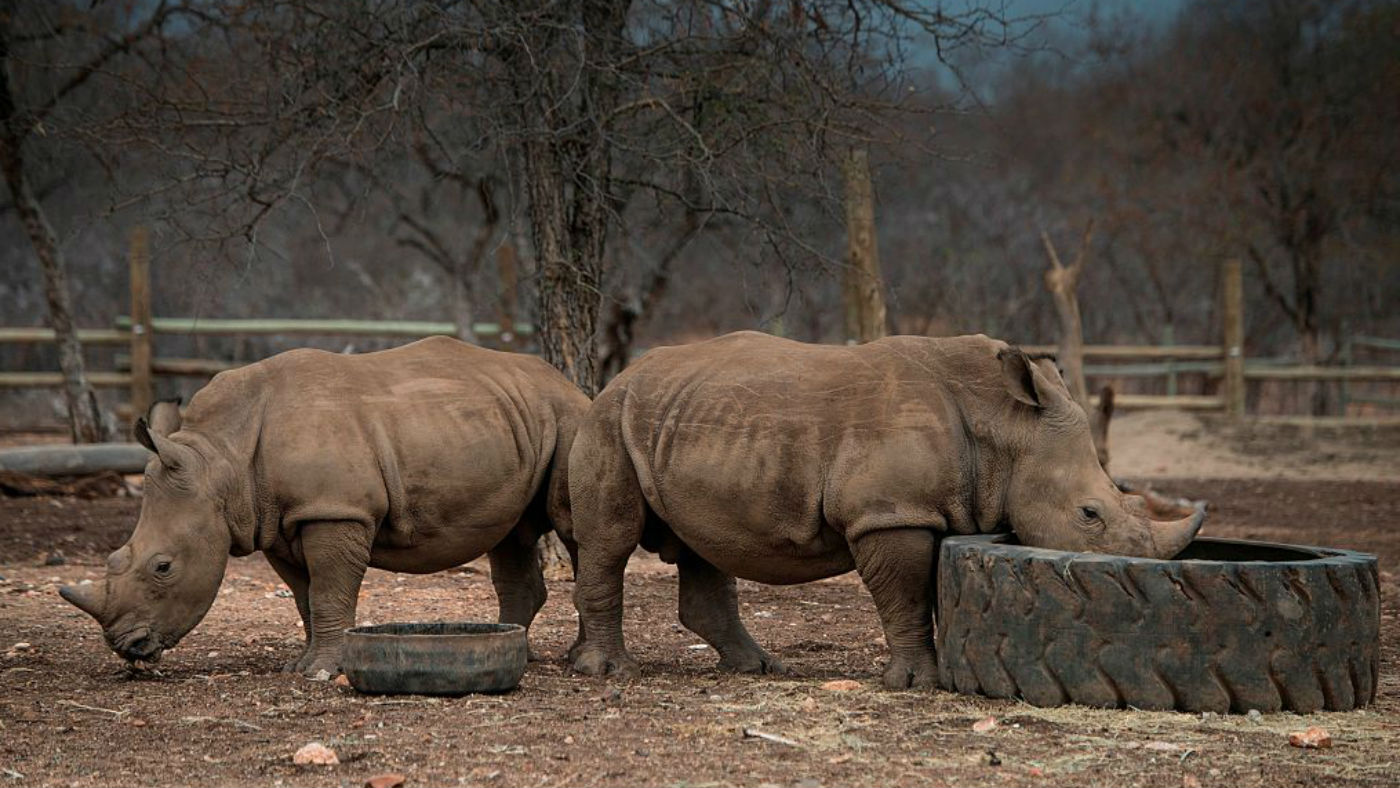South Africa lifts ban on domestic rhino horn trade
Constitutional court lifts eight-year-old ban, leading to fears of an increase in poaching

A free daily email with the biggest news stories of the day – and the best features from TheWeek.com
You are now subscribed
Your newsletter sign-up was successful
Conservation groups have condemned South Africa's decision to lift a ban on the domestic trade of rhino horn.
The ruling by the constitutional court, which dismissed a government appeal to keep the moratorium in place, means anyone with a permit can buy and sell rhino horns inside the country.
South Africa banned rhino trade in 2009 following an increase in poaching and conservationists fear legalising the domestic trade will lead to it rising again.
The Week
Escape your echo chamber. Get the facts behind the news, plus analysis from multiple perspectives.

Sign up for The Week's Free Newsletters
From our morning news briefing to a weekly Good News Newsletter, get the best of The Week delivered directly to your inbox.
From our morning news briefing to a weekly Good News Newsletter, get the best of The Week delivered directly to your inbox.
Morgan Griffiths, of the Wildlife and Environment Society of South Africa, told National Geographic magazine that poachers will "use the significant loopholes to cater to the increased demand for horn in the Far East".
She added: "These regulations are to appease the private rhino owners and [the Department of Environmental Affairs], who want to be able to sell horn on the international market."
However, the news delighted breeders, who argue it could reduce the illegal slaughtering as the horns could be removed from anaesthetised animals.
"We are absolutely delighted at the ruling by the constitutional court," Pelham Jones, chairman of the Private Rhino Owners Association told AFP.
A free daily email with the biggest news stories of the day – and the best features from TheWeek.com
Rhino poaching has skyrocketed in the past decade following an increase in demand for horns from Vietnam and China, where they are used in traditional medicine and valuable carvings.
South Africa is home to 70 per cent of the world's 29,500 rhinos. Last year, poachers killed 1,054 of the animals compared to only 13 in 2007.
International trade of rhino horn remains illegal.
-
 6 of the world’s most accessible destinations
6 of the world’s most accessible destinationsThe Week Recommends Experience all of Berlin, Singapore and Sydney
-
 How the FCC’s ‘equal time’ rule works
How the FCC’s ‘equal time’ rule worksIn the Spotlight The law is at the heart of the Colbert-CBS conflict
-
 What is the endgame in the DHS shutdown?
What is the endgame in the DHS shutdown?Today’s Big Question Democrats want to rein in ICE’s immigration crackdown
-
 Epstein files topple law CEO, roil UK government
Epstein files topple law CEO, roil UK governmentSpeed Read Peter Mandelson, Britain’s former ambassador to the US, is caught up in the scandal
-
 Iran and US prepare to meet after skirmishes
Iran and US prepare to meet after skirmishesSpeed Read The incident comes amid heightened tensions in the Middle East
-
 Israel retrieves final hostage’s body from Gaza
Israel retrieves final hostage’s body from GazaSpeed Read The 24-year-old police officer was killed during the initial Hamas attack
-
 China’s Xi targets top general in growing purge
China’s Xi targets top general in growing purgeSpeed Read Zhang Youxia is being investigated over ‘grave violations’ of the law
-
 Panama and Canada are negotiating over a crucial copper mine
Panama and Canada are negotiating over a crucial copper mineIn the Spotlight Panama is set to make a final decision on the mine this summer
-
 Why Greenland’s natural resources are nearly impossible to mine
Why Greenland’s natural resources are nearly impossible to mineThe Explainer The country’s natural landscape makes the task extremely difficult
-
 Iran cuts internet as protests escalate
Iran cuts internet as protests escalateSpeed Reada Government buildings across the country have been set on fire
-
 US nabs ‘shadow’ tanker claimed by Russia
US nabs ‘shadow’ tanker claimed by RussiaSpeed Read The ship was one of two vessels seized by the US military